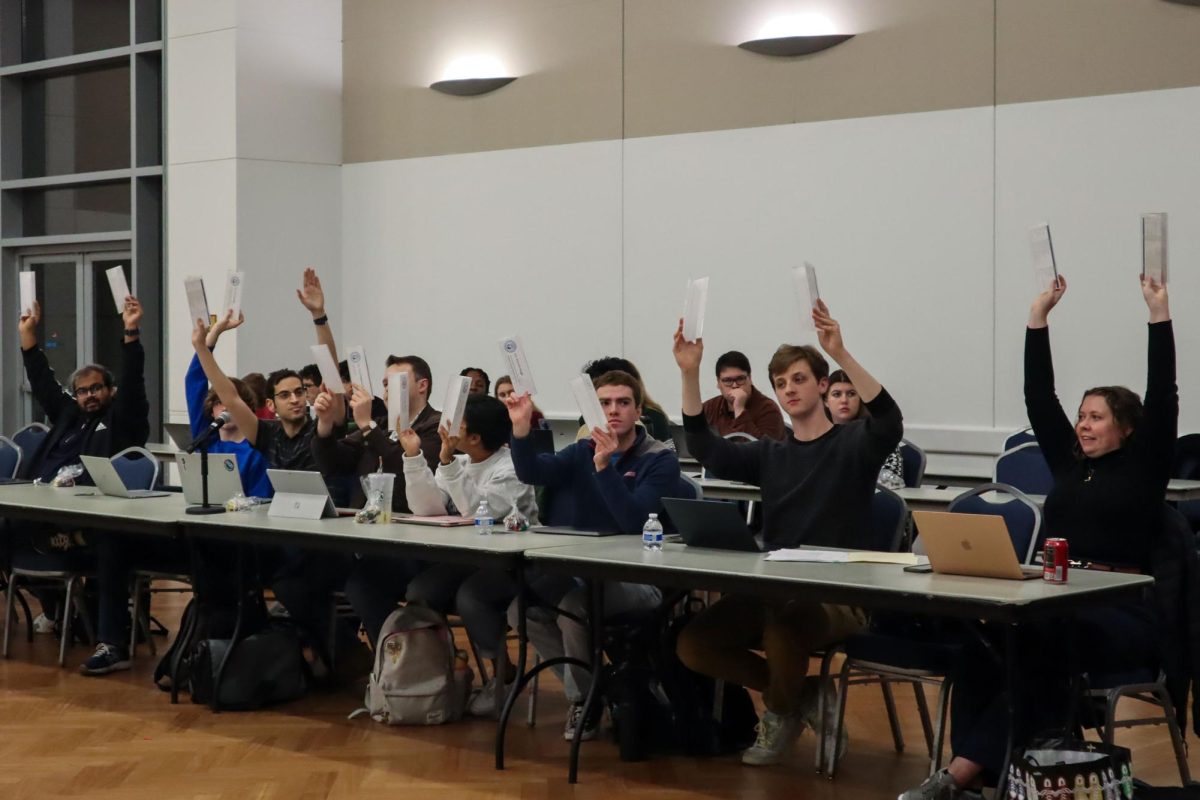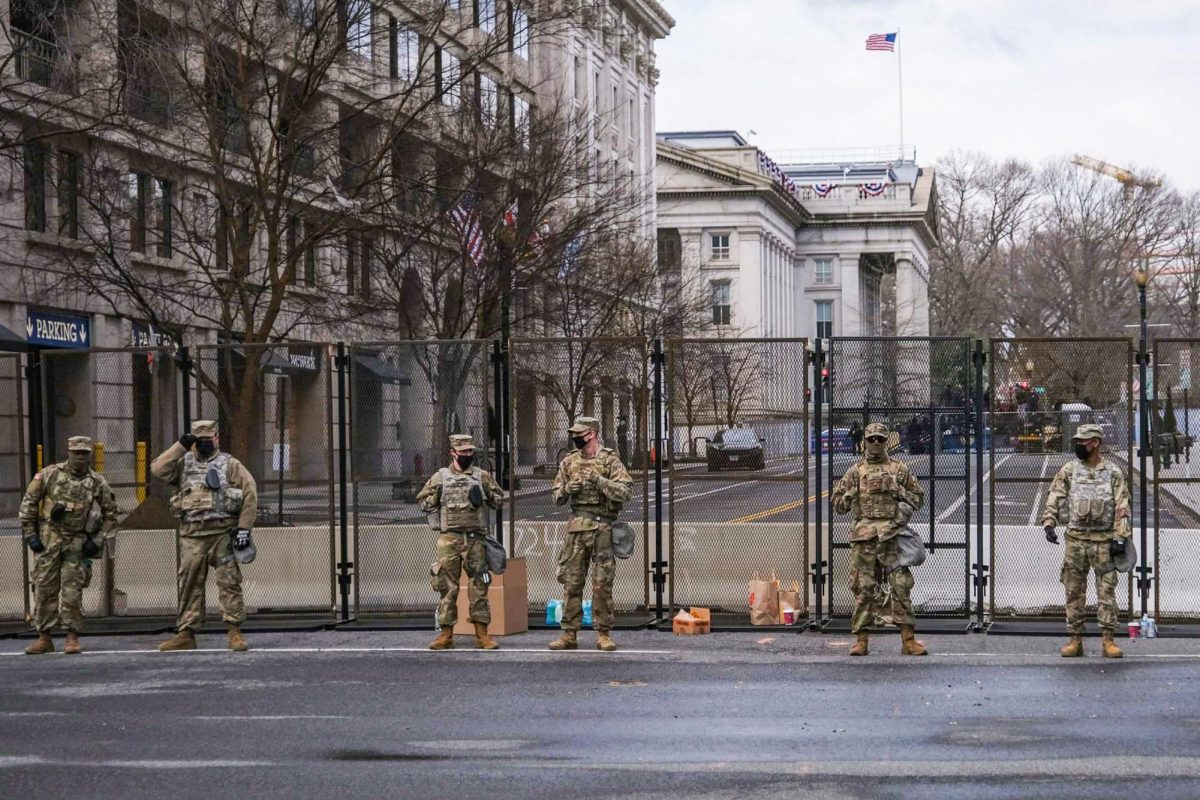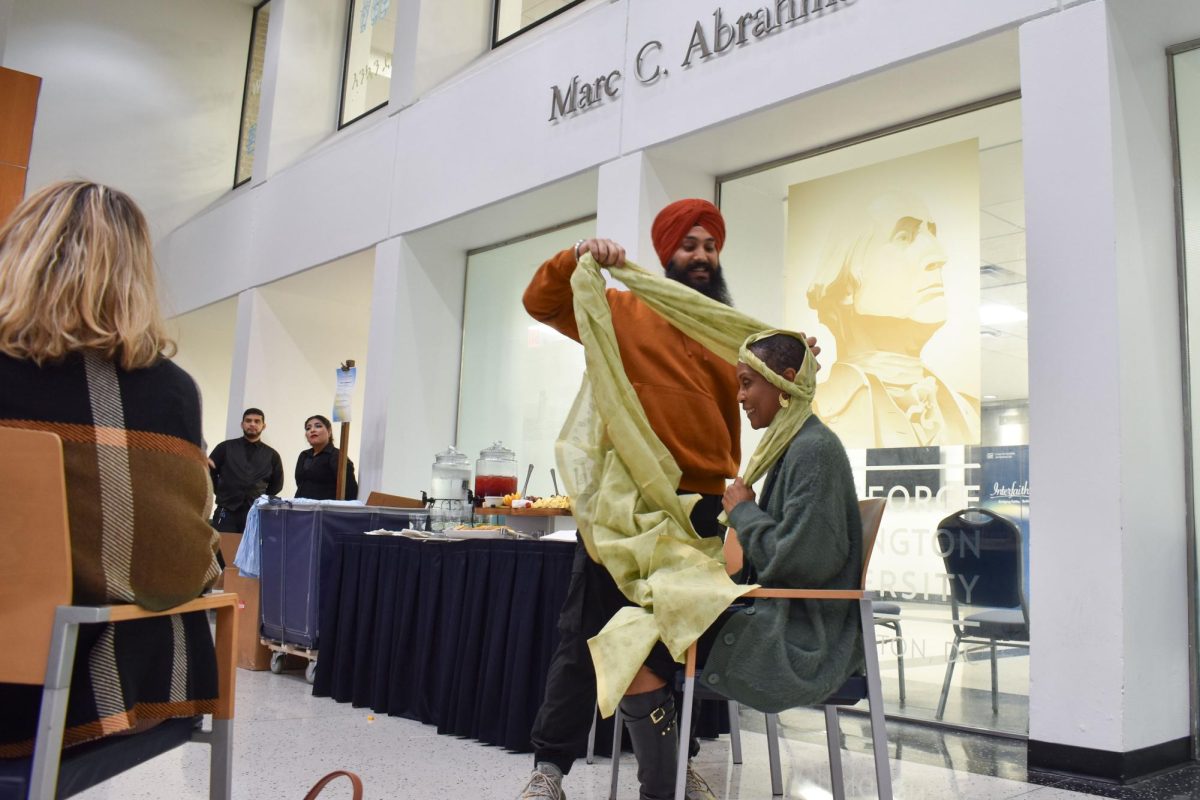Student Association senators said University officials have failed to communicate with student leaders after the SA Senate passes bills, stifling their advocacy.
Of the nine resolutions that called on action by GW officials passed by the two previous senates, University administrators have responded publicly to only one, which some senators say dampens their ability to advocate for students because of the administration’s power to make the changes senators request through their legislation. No clause in the SA’s bylaws or charter states that the administration must review the SA Senate’s resolutions, but senators say their resolutions are a vehicle for student advocacy and are hindered by a lack of University response.
University spokesperson Julia Metjian declined to comment on how many SA Senate resolutions that GW administrators have considered, why officials have not responded to bill sponsors about implementation and the factors the University considers when reviewing legislation. The nine resolutions passed over the last two senates included requests that the University offer attendance accommodations on Election Day to encourage students to vote, declare a climate emergency and change the name of the SA to the Student Government Association.
“The leadership and efforts of the Student Association to highlight the topics that are important to the student body are appreciated,” Metjian said in an email. “This information gives the administration valuable insights as the university continues to focus on enhancing the student experience and supporting the growth and well-being of students.”
SA Sen. Dan Saleem (CCAS-U) has sponsored two resolutions during this senate term — the Accredited Valor Act and the Election Day Voting Act — which he directed toward the Office of the Registrar and GW faculty and administration, respectively. He said he did not have success reaching members of the administration after the SA Senate unanimously passed the bills this fall.
Before the writing of the Accredited Valor Act, Saleem had conversations with the Office of the Registrar about why they did not accept military credits known as Joint Service Transcript credits, he said. The bill requests the office to accept the credits, which would allow members of the military to receive college credits for the skills and knowledge gained during their service.
Saleem said he got the green light from his SA advisers to write the resolution but, after the bill’s November passage in the SA Senate, hasn’t heard anything back from SA administrators or the SA’s adviser — Brian Joyce, the assistant dean of student life — about progress on the request.
Saleem said SA Vice President Demetrius Apostolis has been in contact with Provost Chris Bracey to discuss implementing the Election Day Voting Act — which asked administration and faculty to provide recorded lectures or virtual classes on Election Day so students would be more inclined to vote.
Saleem said resolutions are “powerless” unless the SA Senate’s action is followed up by the administration, which has the power to make the changes the SA is requesting.
“If administration doesn’t either take us seriously, or if administration doesn’t at least meet with us to talk about this, then the impact of SA drops so much,” Saleem said. “I don’t think we’re able to do anything without the help of administration.”
SA Sen. Ethan Fitzgerald (CCAS-U), who also sponsored two resolutions this year — including the Student Empowerment Act, which was directed toward the Board of Trustees — said while a University spokesperson told The Hatchet that trustees would not consider the bill, the University did not give him an official response. He said he was “disappointed” but not surprised by their lack of consideration and will continue to look for different avenues of advocacy.
Fitzgerald said while he has been able to meet with the administration previously, he believes the board must consider SA resolutions and proposals to show that trustees are listening and willing to make changes.
“When there’s an unwillingness to engage, it signifies the opposite,” Fitzgerald said in a text message.
Fitzgerald said ideally, he wishes officials would state how they would move forward with a request, including if they will consider it and if they need any further information from the senator.
Former SA Sen. Kai Simson (CPS-G), who served as a senator during the 2021-22 and 2022-23 academic years, said he sponsored a bill during his first year in the position calling on GW to declare Election Day a University holiday. He said he was told in “various conversations” with administrators that they would not speak to him and that he had to go through former SA President Brandon Hill and former SA Vice President Kate Carpenter if he wanted anything done.
Simson said he sponsored another resolution requesting accommodations for Election Day during his second term but also did not have any communication with the administration concerning its implementation after its passing. He said he also sponsored a resolution requesting GW to declare a climate emergency but it “went into the ether” when his SA term concluded.
Simson said from his personal experience in the SA, the University’s lack of response has made it more difficult to address students’ needs. The administration has the responsibility to make the most change but the SA will continue to fight on behalf of the students, he said.
“We actively seek to work with administration wherever possible to advance the interests and needs of the students,” Simson said in a text message. “We would hope the administration would work with us on this, and resolutions by the SA are the way we can work to advance these causes.”
Former SA Sen. Cody Ingraham (Law-G) — who sponsored two resolutions that were unanimously passed during the 2022-23 SA Senate calling on the University to reinstate on-campus graduate housing — said he never heard a response from administrators regarding their consideration of his bill. He said issues and requests are worth “at least a conversation” with officials because the bills represent what is salient to students at a given moment.
Ingraham said officials should implement a timeline for their responses to SA legislation and send responses to senators who proposed bills that passed, confirming their receipt of the legislation and their steps forward.
“Something that the SA can’t force administrators to do, but what I think administrators should do on their own is give a timeline of ‘We’ll respond within two weeks’ or ‘We’ll respond by the next SA meeting,’” Ingraham said.
Apostolis, who co-sponsored two bills directed to the Board of Trustees this fall, said the Senate’s passing of a bill is a formality that cements the work senators have completed behind the scenes and allows for them to work further with administrators to achieve a final solution. He said responses depend on which administrators a senator is working with and the content of the request.
Apostolis said from prior experience, the Board has not been open to the senate’s resolutions and has not been “really communicative.”
But other administrators, like Dean of Students Colette Coleman’s team, have been “really accommodating” about previous requests like extending Lerner Health and Wellness Center hours and creating last year’s career fair, he said. Neither initiative was sparked by a resolution requesting the University work with the SA Senate on the proposals’ implementation but instead through other forms of communication with administrators.
“You’ll see multiple examples, sometimes it is dampening because either administration doesn’t respond or there isn’t enough follow-up,” Apostolis said. “But, in some cases, they are really eager to work on things.”





